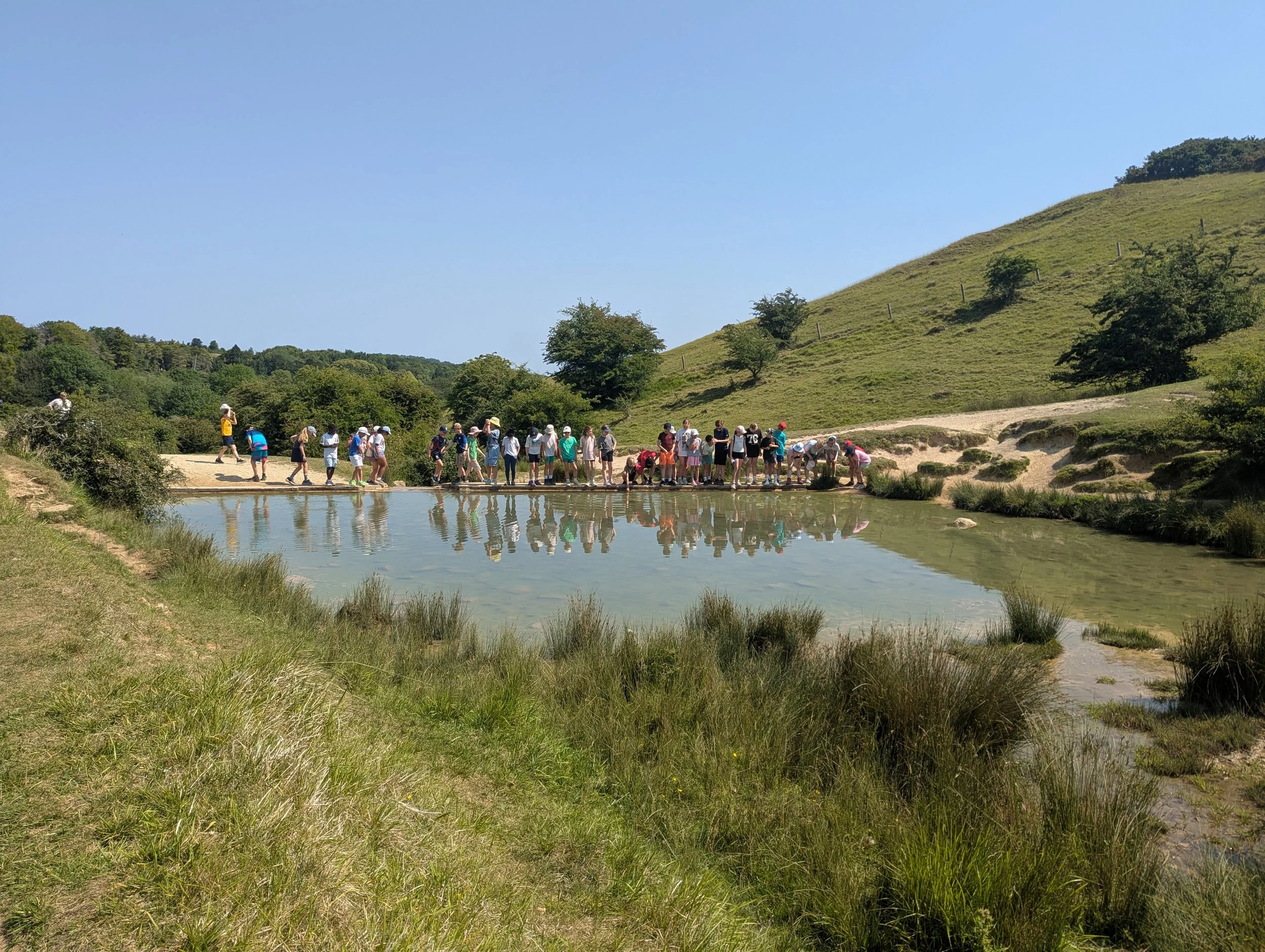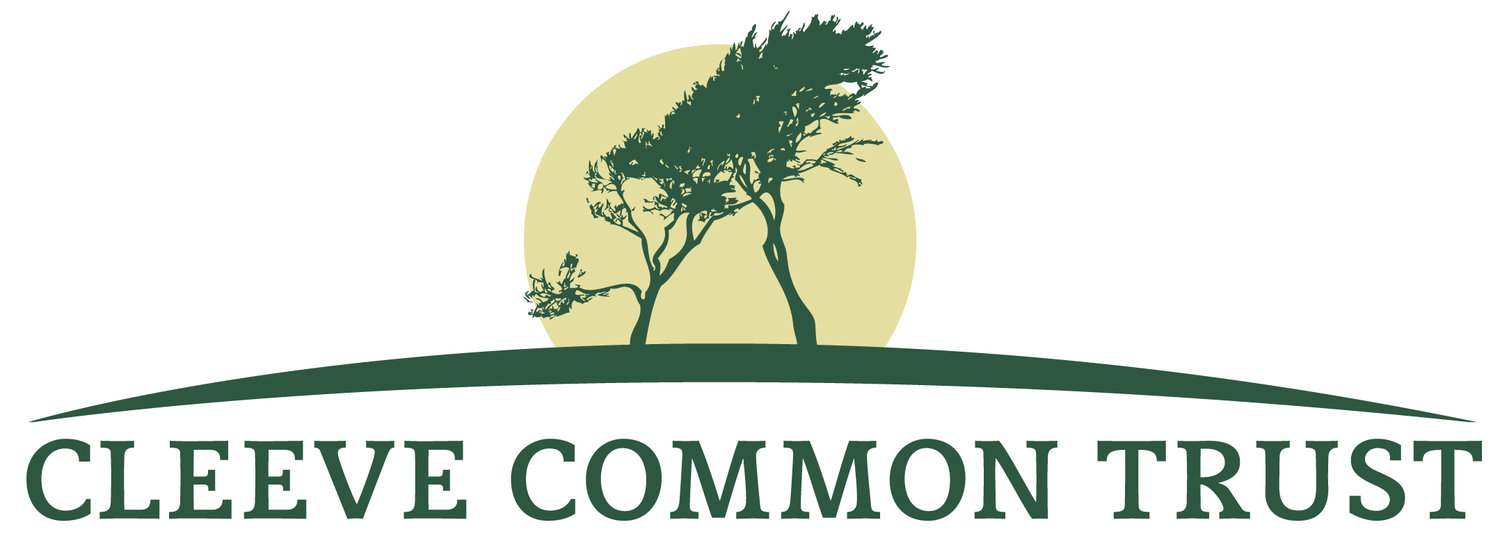
Learning FAQs
Cleeve Common is a brilliant place for students of all ages. Cleeve Common is a great example of farming with conservation and the environment in mind. Managing the Common is a juggling act, ensuring there is grass to feed the sheep and cattle, protecting the landscape features such as stone walls, managing the habitats – grassland, heathland, woodland, and working with all the people who enjoy the Common. Cleeve Common is a special place to many people for many reasons.
There is significant evidence suggesting that young people in Britain are spending less time outside and are disconnected from how their countryside and how food is produced. There average age of farmer in Britain is 55.
Bringing young people to Cleeve Common should be a hugely rewarding experience for all involved. All the lessons taught will briefly mention food, farming and the environment. Some lessons will focus on each of these aspects in closer detail.
Utilising the countryside classroom is a brilliant method to teach subjects that are difficult to comprehend in a more formal setting. Many people learn by seeing tangible animals, plants and interactions in nature. It helps reinforce what is being taught in the classroom and can cement a whole plethora of science, maths, geography and history skills.
How do I book a visit?
In the first instance, please email our Community Engagement Officer. We can normally offer visits for free but you will need to organise and pay for transport.
A confirmation email will be sent once a date has been agreed.
We ask each teacher who visits to fill out an evaluation form on the day. This helps us monitor how we are doing, and improve our service to the community. It is also essential to enable us to keep offering free visits through funding from Natural England. Please take a few moments to complete this form after the visit and hand it to us before you leave. Additional feedback regarding the visit is also appreciated. Failure to complete the form may result in us having to charge your school or group for the visit.
What facilities are available to students and staff?
We work closely with the Golf Club and are usually able to use some of their indoor space as a wet weather contingency. We are also able to access their toilets. However, all of our sessions are based out on the Common, sometimes quite a distance from these facilities.
Parking area- hard surface available for 1 coach/3 mini buses/9 cars.
Currently, there is very restricted access for wheelchair users. However, specific lessons can be arranged for wheelchair users in a more accessible area of the Common.
When do you cancel?
We will not cancel sessions for rain. If high wind or low visibility conditions deem Cleeve Common an unsafe place to bring students we may have to reschedule your learning day, or change our plan for the day at late notice so we can base ourselves in more sheltered parts of the site.
If you wish to cancel your trip you must give a minimum of 24hrs notice. Cancellation on the day will result in a cancellation fee of £50.
What happens on a visit?
A team member will give an introductory talk about the visit with some background to Cleeve Common. The lesson is led by the Community Engagement Officer who has a background in environmental education (if booked), with support from Cleeve Common volunteers and teachers and parents from the school. Teachers must be present for the duration of the visit and are responsible for the behaviour, and the health and safety of the pupils. Lessons vary from two to two and a half hours dependent on the age and ability of pupils.
Each lesson includes a walk and exploration of the Common with an activity that has been pre-arranged with the teacher. Pupils are brought back together for a final discussion. Schools are welcome to stay onsite after the lesson has ended.
Risk Assessment and Insurance
We require schools and trip organisers to produce their own risk assessment and ensure that they have appropriate insurance for the visit.
However, we fully risk assess all our work and are happy to talk through any hazards with teachers or group leaders. We also encourage a pre-trip site visit.
The participants on the visit will be the responsibility of the trip organisers and/or teachers.
Health and Safety
We comply with Health and Safety Regulations and all activities are fully risk assessed. However it is important that all pupils and supervising adults are aware of the correct Health and Safety guidelines. As with any educational trip there are many factors to be considered: Teachers/trip organisers should bring their own first aid kits and complete their own risk assessments.
As a general rule, the ratio of supervisors to pupils should be 1:1 for pupils under 1 year old, 1:2 for pupils between 1 and 2 years old, 1:3 for pupils between 2 and 3 years old, 1:4 for pupils between 3 and 5 years old, and 1:8 for those between 5 and 8 years old. The ratio of supervisors for pupils between 9 and 11 years old should be 1:10-15, and 1:15-20 for pupils from 12 years old and above. These are examples only and group leaders should assess the risks and consider an appropriate safe supervision level for their particular group.
Cleeve Common is 1000 foot above sea level and very exposed. It is often several degrees cooler than anywhere else, and out on a hill top, the wind can feel like ice. The ground can be wet and muddy in places, particularly in winter. Remember sun cream/sun block and hats in summer. Having correct clothing helps participants get the most out of their outdoor learning experience. Please ensure everyone has water and food with them as there is nowhere to buy food and drink once you arrive.
Appropriate behaviour will reward pupils with better views of wildlife behaving naturally. We would respectfully ask teachers to discuss the following with their pupils before the visit begins:
Please take all litter home with you.
Please do not pick any flowers unless instructed.
Please stay with your group at all times.
Please do not try to touch the animals- they can be dangerous when scared.
During and after the visit, make sure that the pupils:
Always wash their hands thoroughly before and after eating, after any contact with animals, and again before leaving the site.
Eat only food that they have brought with them, in designated areas, and never eat food which has fallen to the ground, or taste the animals’ food.
Do not suck fingers or put hands, pens, pencils or crayons, etc. in their mouths.
Clean or change their footwear before leaving, remembering to wash their hands after any contact with animal faeces on their footwear.
Access for visitors using wheelchairs, mobility scooters or buggies is possible at the Radio Masts, the Golf Club and West Down (see the Where to Park map). Please note there are no surfaced paths on the Common. Cotswold NL includes 2 panoramic routes starting at the Radio Masts in the publication Walks on Wheels which you can download here. Please contact us if you want to arrange a group visit for wheelchair users, and we would love to work to try to accommodate you.

